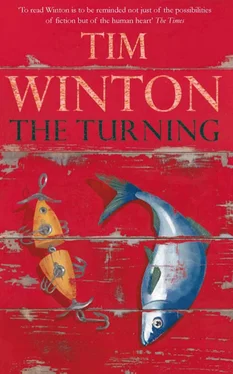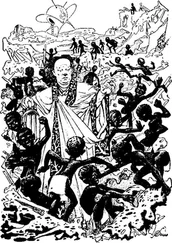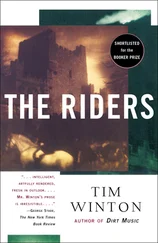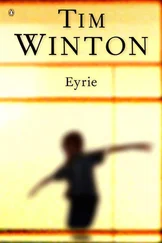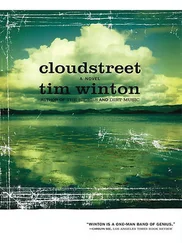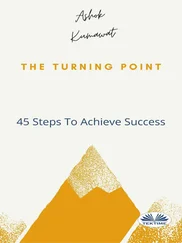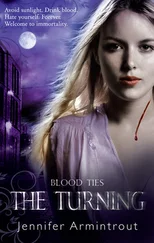Before long the girl began to sob quietly. Beneath the poncho the cocktail of their sweat and breath and the odours of perfume and wet wool became more discomforting to Lang than the cold or the damp or the stones beneath his hip. He had neither the words nor the will to console her. In fact he came to dislike her as much as he did the stale-smelling man between them, the idiot who’d caused all this trouble.
No, he decided. He’d say nothing. It was what he was best at now. When you’ve lost your pride there’s nothing left to say.
He lay there to wait it out. At the first break in the fog he’d take the camera up the rock and set the flash off at regular intervals. Eventually he’d guide the vollies up to where he was. It’d come out alright. They wouldn’t freeze to death. The girl, Marie, would forget her blubbering fear because she’d get her rescue piece on the front page. She’d have her victim, her ordeal, her stoic hero. It’d be a great story, a triumph, and none of it would be true.
TO SAY THAT I WENT TO SCHOOL with Boner McPharlin is stretching things a bit because he was expelled halfway through my first year at high school. That would make it 1970, I suppose. I doubt that I saw him more than five times in his grotty hybrid uniform but I was awestruck when I did. We’d all heard about him back in primary school. The local bad boy, a legendary figure. And suddenly, there he was, fifteen and feral-looking, with grey eyes and dirty-blond hair past his shoulders. In his Levi’s and thongs he had that truckin stride, like a skater’s wade, swaying hip to hip with his elbows flung and his chest out. He had fuzz on his chin and an enigmatic smirk. His whole body gave off a current of sexy insouciance. To me, a girl barely thirteen, he was the embodiment of rebellion. I wanted that — yes, right from the first glance I wanted it. I wanted him. I wanted to be his.
I watched him swing by, right along the lower-school verandah with a bunch of boys in his wake — kids who seemed more enthralled by him than attached to him — and I must have been pretty obvious about it because my best friend, Erin, stood beside me with her hands on her hips and gave me a withering look.
No way, she said. Jackie, no way.
Erin and I went back forever. We were at a cruel age when we clung fiercely to girlhood yet yearned to be women, and everything excited and disgusted us in equal measure. Sophistication was out of reach yet we could no longer remember how to be children. So we faked it. Everything we did was imitation and play-acting. We lived in a state of barely suppressed panic.
I was only looking, I said.
Don’t even look, said Erin.
But I did look. I was appalled and enchanted.
Boner McPharlin was the solitary rough boy that country towns produce, or perhaps require. The sullen, smouldering kid at the back of the class. The boy too brave or stupid to fear punishment, whose feats become folklore. When he strutted by that day I knew nothing about him, really. Only the legend. He was just a posture, an attitude, a type. He represented everything a girl like me was supposed to avoid. He posed some unspecified moral hazard. And I sensed from Erin that he was a peril to friendship as well, so I said nothing about him. I went on being thirteen — practised shaving my legs with the old man’s bladeless razor, threw myself into netball, tore down my Johnny Farnham posters and put David Bowie in his place. I had a best friend — I shared secrets with her — yet they felt inconsequential once I saw Boner. Boner was my new secret and I did not share him.
I don’t know what it was that finally got Boner expelled from school. He did set off pipe bombs in the nearby quarry. And there was, of course, the teacher’s Volkswagen left on blocks in the staff carpark and the condoms full of pig blood that strafed the quadrangle in the lead-up to Easter, but there were plenty of atrocities he didn’t commit, incidents he may have only inspired by example, yet he took the rap for all of it. With hindsight, when you consider what happened later in the seventies when drugs ripped through our town, Boner’s hijinks seem rather innocent. But teachers were afraid of him. They despised his swagger, his silence. When he was hauled in he confessed nothing, denied nothing. He wore his smirk like a battlemask. And then one Monday he was gone.
The rest of us heard it all at a great remove. Everybody embellished the stories they were told and the less we saw of Boner the more we talked. Much later, when there was a fire at the school, he was taken in for questioning but never charged. I heard he went to the meatworks where his old man worked in the boning room. That was where the name came from, how it was passed from father to son. On Saturdays Boner lurked in the lee of the town hall or sometimes you’d see his mangy lumberjacket wending through cars parked around the boundary at the football.
At fourteen Erin and I began to be dogged by boys, ordinary farmboys whose fringes were plastered across their brows by built-up grease and a licked finger, and townies in Adidas and checked shirts whose hair didn’t touch their collars. They were lumpy creatures whose voices squawked and their Brut 33 made your eyes water. We were more alert to their brothers who drove Monaros and Chargers. But we weren’t even sure we were interested in boys. We were caught in a nasty dance in which we lured them only to send them packing.
The drive-in was the social hub of the town. My parents never went but they let me walk there with Erin and we sat in the rank old deckchairs beside the kiosk to watch Airport and M*A*S*H and The Poseidon Adventure . We wore Levi cords, Dr Scholls and 4711 ice cologne. Neither of us would admit it, but in our chaste luring and repelling of boys, Erin and I were locked in competition. There was a tacit score being kept and because she was so pretty, in an Ali McGraw kind of way, I was doomed to trail in her wake. I kept an eye out for Boner McPharlin and was always thrilled to see him truckin up toward the kiosk with a rolly paper on his lip. I kept my enthusiasm to myself, though there were times on the long walk home when I thought aloud about him. I was careful not to sound breathless. I did my best to be wry. I aped the new women teachers we had and adopted the cool, contemptuous tone they reserved for the discussion of males. I was ironic, tried to sound bemused, and while I waxed sociological, Erin lapsed into wary silence.
At about fourteen and a half Erin started letting a few boys through the net. Then they became a steady stream. Our friendship seemed to survive them. I tagged along as though I was required for distance, contrast and the passing of messages. She made it clear she wasn’t easy. Nothing below the waist. Friendship rings were acceptable. No Italians. And she did not climb into vehicles.
I must have been fifteen when Boner McPharlin got his driver’s licence. Suddenly he was everywhere. He wheeled around town in an HT van with spoked fats and a half-finished sprayjob in metallic blue. That kind of car was trouble. It was a sin-bin, a shaggin-wagon, a slut-hut, and as he did bog-laps of the main drag — from the memorial roundabout to the railway tracks at the harbour’s-edge — the rumble of his V-8 was menacing and hypnotic. Sometimes he cruised by the school, his arm down the door, stereo thumping.
Erin and I walked everywhere. Outside of school there was nothing else to do but traipse to the wharf or the beach or down the drab strip of shops where the unchanging window displays and familiar faces made me feel desperate.
I wish something would happen, I often said.
Things are happening all around us, said Erin.
I didn’t mean photosynthesis, I muttered.
Читать дальше
